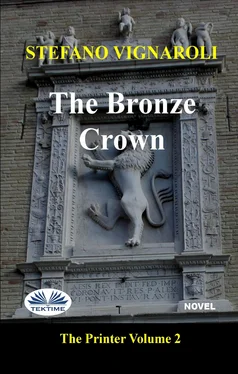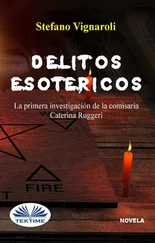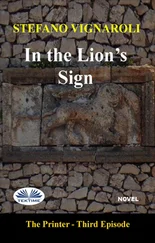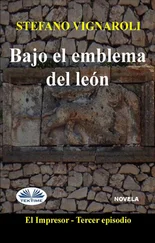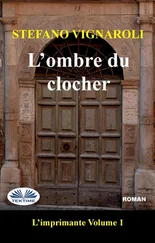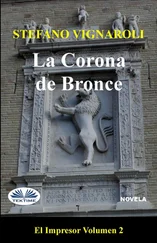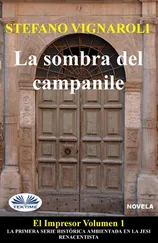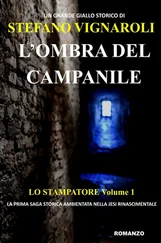Something unheard, one has to hear everything nowadays, had thought between himself Innocent. Once the maids offered their young bodies to their Lord and kept silent. Today they even have the audacity to rebel! Of course, if Baldeschi is no longer here, Jesi and his county are an attractive land of conquest for many of those present here.
And in fact, the question of the assignment of the Episcopal Curia of Jesi was one of the first that had to deal with the Camerlengo as a substitute of the Pope. He decided that the best thing was to appoint a Cardinal who would not take part in the conclave, so he could leave immediately for those lands troubled by years of struggles, wars, betrayals and misgovernment, which had led the population, especially in the countryside, to a state of considerable misery and where, lately, it seemed that the terrible disease known as the plague was also spreading. The choice fell on Cardinal Jacobacci, who left Rome immediately, but who, having arrived at Orvieto, his native land, stopped there to enjoy a period of rest in his native places, which was perhaps prolonging a little too much. But someone said that the Cardinal had lost his head over a local maiden, and would not have left there for anything in the world.
Gualtiero Jacobacci hadn’t lost his head over any maiden, neither young nor old. He had paused to admire the splendid façade of the Duomo, not yet finished, and had longed for those places where he had lived his childhood. In his life he had never seen the cathedral free of scaffolding. He knew that construction had begun over two hundred years earlier, but now the boxes were only left on the façade to allow artists to complete the refined decorations that would embellish it and make it famous in the centuries to come. He took advantage of the fact that the Episcopal Curia was free, as Cardinal Alessandro Cesarini, Bishop of Anagni and Orvieto, was in forced retreat in Rome to participate in the conclave, and was hosted by the local ecclesiastical community, also beginning to celebrate Holy Mass inside the unfinished cathedral. Everything had in mind, in short, except to reach Jesi, the seat that had been assigned to him by the Camerlengo. The fun would not last long, since sooner or later the new Pope would be elected and Cardinal Cesarini would return to the seat. But Gualtiero didn’t want to think about it. Carpe diem, he said to himself, making Horace’s quotation his own. Let’s seize the moment and enjoy this fine period. When the time comes, we’ll see what to do! Maybe, when the time comes, I could propose to Alessandro Cesarini an exchange: me here and him in Jesi. Jesi, like the entire Ancona region, is a sought-after seat for a high prelate. The countryside is known for its richness and the Church wants at all costs to bring those territories back under its wing in a definitive way, giving a cut to the old legacies of Municipalities, Lordships and local Nobility. An ambitious man like Cesarini will certainly not be able to say no to my offer. And I’ll be able to enjoy old age in my home country.
Finally, after more than a month of black smoke, on January 9, 1522 the white smoke came out of the fireplace. The Camerlengo breathed a sigh of relief and rushed inside the wing where the conclave was held to perform his ritual duties. It seemed to him that an eternity had passed since the day Leo X died. He had found him lying on the table where he was eating. He had called the guards and had the body reassembled in bed, then he had beaten the Holy Father’s skull with a hammer, to make sure that the body no longer responded with any reflection, neither voluntary nor involuntary. When the limbs, legs and arms became stiff, he had called the Pope three times with the baptismal name: «John... John... John!». Having received no reply, he had officially declared the Holy Father dead. He had the funeral chamber set up and organized the funeral rite, at the end of which Pope Leo X would join his predecessors in the basement of the basilica built above the tomb of St. Peter. After that he had summoned the Conclave, but he realized that his position was considered very uncomfortable by a certain faction of the participants in the assembly, those closest to the De’ Medici family. He had always been the Cardinal closest to the Pope, but notoriously he was part of the same family as Giovanni Battista Cybo, who had occupied the papal throne until 1492 under the name of Innocent VIII. The evil tongues, since he was responsible for the Pope’s safety and all the food that arrived on the Holy Father’s table had to be approved by him, had suggested that he himself might be responsible for the unexpected and premature death of Leon X. In fact, he may well have poisoned the food, with the intention of aspiring to the pontificate and bringing a member of the Genoese family back to the highest office. Innocent knew very well that he was innocent and that he had not perpetrated any conspiracy against his beloved Pope. John De’ Medici had suffered from heartbreak since he was a boy, and for this very reason he never devoted himself to arms. So no one had poisoned him, he had collapsed and died a natural, albeit sudden, death. The fact of becoming a Camerlengo had partly removed suspicion from him, as he would not be eligible as Pope, but not entirely. Giulio De’ Medici and three or four other Cardinals continued to look at him in doggedness, but he responded to those provocations with the best of defences: silence. Of course, those weeks hadn’t been easy, but he had never been able to stand up to his enemies. Not a word had ever come out of his mouth, whether he accused the Medici of envy or of careerism. He continued to do his duty as if nothing had happened. But now, as he climbed the stairs with his breath down his throat, the fear that the Medici would be the new elected one was gripping him. He was convinced that he would somehow avenge the untimely death of his family’s member. And already Innocent imagined himself with his head resting on a stump waiting for the axe that, with one blow, would make it fly away from the rest of his body. When he opened the envelope where the name of the new pontiff was written, he drew the second sigh of relief in a few minutes.
The Camerlengo looked out onto the terrace overlooking the square below and shouted, with what breath he had in his throat, to the faithful who were waiting curiously:
«Nuntio vobis gaudium magnum! Habemus Papam, eminentissimum et reverendissimum dominum Adrianus Florentz, qui sibi imposuit nomen Adrianus sextus.»
Rumours and acclamations rose from the square below, waiting for the new Pope to show up and speak to the crowd of the faithful. While Innocent was helping the new Pope to put on the sacred vestments of the rite, thoughts flowed fast in his mind. This Adriano VI won’t last long, before someone from the De’ Medici family gets their hands on it. But whether it lasts a month, a year or a century, no one can accuse me. From tomorrow, Innocent Cybo returns to Genoa.
Like all the others, Cardinal Alessandro Cesarini packed his bags to return to his home in Orvieto. When he arrived on March 4 of the year of our Lord 1522, he was a little bewildered by the fact that his bishopric had been arbitrarily occupied by his colleague, but when he heard the latter’s proposal he could hardly believe his ears. He who would have made false cards to have the Episcopal Curia of Jesi, left vacant by Cardinal Baldeschi, if he saw it offered on a silver platter by those who had been chosen as its owner, only because it was linked to the places where he had spent his childhood. Incredible, but true! An opportunity not to be missed! Having sealed the pact with Jacobacci, Alessandro Cesarini, eager to rest for a few days, sent a messenger to Jesi, to announce his arrival and his settlement to the city authorities. The messenger arrived in Jesi only on March 12th, and the General Council of the City, meeting for the occasion in the Main Hall of the Palazzo del Governo and presided over by the nobleman Fiorano Santoni, took note of the appointment - even if Cardinal Jacobacci would have been more welcome - and also decided to give Cesarini a life annuity of 25 florins per month. All this when the Cardinal was already at the gates of the city, so he was not even in time to prepare a worthy welcome for the new Bishop, who found himself entering a city completely indifferent to his arrival. Cesarini was not only disappointed with the welcome, but also and above all with the fact that he found the city and the countryside in very different conditions from what he had expected. After the sack suffered by the city in 1517, there followed a few years of bad governance by Cardinal Baldeschi, who had reduced the area to conditions of misery never seen before in living memory. In addition to the damage and harassment that had been brought by the invading armies, the plague had returned as a nightmare to terrorize the population. And so Cesarini, who still had many interests in the area of Anagni and Orvieto, soon began to spend most of his time away from Jesi, citing as an excuse his nagging ecclesiastical commitments at the Papal See, and leaving in his place harsh vice-governors, who knew only how to be cruel and tyrannical towards the population.
Читать дальше
